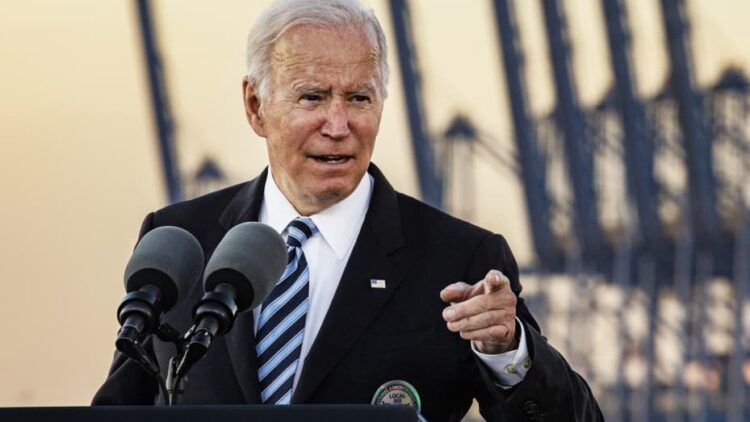By David Young-
In a significant blow to post-Brexit trade ambitions, British ministers have officially abandoned their pursuit of a foundational trade partnership with the United States before the upcoming UK election.
This decision comes in response to signals from the Biden administration, indicating a lack of interest in reaching such an agreement.
A draft outline of the pact and its 11 proposed chapters, prepared by the United States Trade Representative’s (USTR) office earlier this year, indicated negotiations would begin before the end of 2023.
British officials had been aiming for a “foundational trade partnership” as an alternative to a comprehensive free trade agreement before the next election.
However, sources familiar with the talks revealed that discussions have been halted due to reservations among senior Democrats about opening up US markets to more foreign-made goods. Politico was the first to report on this development.
The UK government, while acknowledging the discontinuation of talks, maintained a positive outlook, stating, “The UK and US are rapidly expanding cooperation on a range of vital economic and trade issues building on the Atlantic declaration announced earlier this year.”
Despite this statement, multiple sources have confirmed that the foundational trade partnership is no longer on the negotiating table.
Brexit supporters, who had touted the freedom to sign bilateral trade agreements as a major benefit of leaving the EU, had particularly eyed a trade deal with the US as a significant prize.
However, discussions on a free trade agreement stalled early on, facing resistance from Democratic members of Congress and concerns within the UK about potential imports of chlorine-washed chicken and hormone-injected beef.
Earlier this year, leaked documents revealed that Washington and London were exploring coordination on a partnership covering digital trade, labor protections, and agriculture. While falling short of a fully-fledged free trade deal, the proposed agreement could have paved the way for future negotiations.
Sources suggest that the deal faced inherent challenges, including US demands for greater access to UK agricultural markets.
One notable aspect contributing to the difficulty in finalizing any agreement was the UK’s refusal, voiced by Prime Minister Rishi Sunak, to allow chlorine-washed chicken and hormone-injected beef into the country.
Additionally, recent weeks saw a clear lack of interest from the Biden administration in signing any deal before the election, likely influenced by Donald Trump’s previous use of international trade agreements as a political weapon.
A spokesperson for Ron Wyden, the Democratic chair of the Senate finance committee, emphasized the need for deals that benefit Americans, stating, “It is Senator Wyden’s view that the United States and United Kingdom should not make announcements until a deal that benefits Americans is achievable.”




